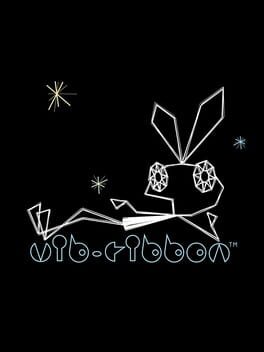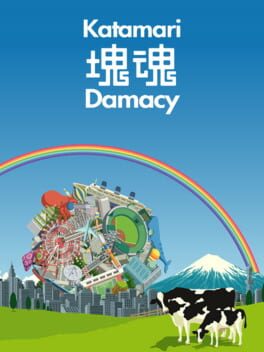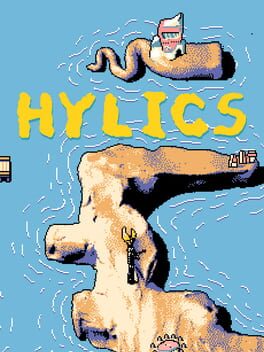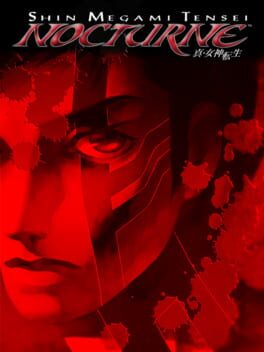oneiromantic
1999
I've got some qualms with its level generation algorithm, which sounds like the nerdiest possible criticism to make of any video game but when something is as minimalistic as this, it being so reductive when it comes to why people listen to music just makes it come off as a little bit stupid. I like it as a celebration of music, this idea of a rhythm game about the feeling of listening to all of the weird stuff that you probably already love.
I don't know how much more memory a more sophisticated algorithm would take up which might forbid it from running on the psx, but since they're already fourier transforming the audio data to read out pitches it shouldn't be too much of a stretch to measure ratios between frequencies to get some sense of harmony, or use some stripped-back version of multi-feature beat tracking (https://www.academia.edu/13252036/Multi_Feature_Beat_Tracking) to do... literally anything regarding rhythm at all. Like obviously I may be asking too much of the hardware but I do feel a need to point out that this game doesn't go as far with its concept as it theoretically could.
I like the game as a statement, and I'd dig something modern that goes with the same idea. Audiosurf tries, I guess, but is actually even less sophisticated than this game in that it does nothing regarding the pitch of the songs and instead only generates obstacles in relation to the volume of tracks. As it stands, though, the game leaves something to be desired.
I don't know how much more memory a more sophisticated algorithm would take up which might forbid it from running on the psx, but since they're already fourier transforming the audio data to read out pitches it shouldn't be too much of a stretch to measure ratios between frequencies to get some sense of harmony, or use some stripped-back version of multi-feature beat tracking (https://www.academia.edu/13252036/Multi_Feature_Beat_Tracking) to do... literally anything regarding rhythm at all. Like obviously I may be asking too much of the hardware but I do feel a need to point out that this game doesn't go as far with its concept as it theoretically could.
I like the game as a statement, and I'd dig something modern that goes with the same idea. Audiosurf tries, I guess, but is actually even less sophisticated than this game in that it does nothing regarding the pitch of the songs and instead only generates obstacles in relation to the volume of tracks. As it stands, though, the game leaves something to be desired.
2016
2018
I once streamed myself playing this game over discord to my closest friend and rambled about how much I appreciate the level designs and movements systems and how those emphasize the themes of the story and he just kept telling me about how he thought the hamfisted personification of the protagonist's inner demons is cute and how "he could never get through this" and if that says anything about the game it's that you can't possibly understand its impact without playing it for yourself
2005
Genuinely astonishing how much more tonally distant this game is compared to its predecessor. I really feel unwelcome while playing the whole thing, even the quote-unquote "improved" design over the original makes it feel that much more Mechanical. The whole thing's a wild spectacle of pointing out all of the ways in which Katamari Damacy speaks for itself and that any proper sequel would just disrupt its creative integrity. I can't think of a single other video game that qualifies as much as a middle finger pointed towards its publisher as this is directed towards Namco. A one-of-a-kind, fourth wall-breaking oddity. Godspeed, Keita Takahashi.
2004
Maybe the only good love story I've ever played. It's also more directly a game about Big Sticky Balls and cheesy j-pop so it's kinda hard to express this opinion but I swear it's actually got something or other going on beyond the surface. I enjoy the movement and very quintessentially "PS2ish" interpretation of early 2000s Japan. Many of the actual level designs feel like they take these environments and just throw in a nearly immersion-breaking amount of garbage and litter so that the game is playable, but yknow I can forgive that much. It's probably the happiest game I've ever played, for whatever that's worth.
2016
Jonathan Blow as a person notwithstanding, this game's pretty solid. It's not insanely dense or anything, but it's a nice change of pace from games in general. I like the quiet atmosphere and slow pacing, I like the nearly-pointless philosophical musings scattered around, I love The Moment in it which would be criminal to spoil.
Its story is minimal, even debatably nonexistent, but it's certainly a compelling experience provided you're not one to get bored to death by it. Personally, I like the wandering around and the scribbling solutions into inscrutable notes, the little obsession the game can breed into first-time players. It's just pretty unique.
Its story is minimal, even debatably nonexistent, but it's certainly a compelling experience provided you're not one to get bored to death by it. Personally, I like the wandering around and the scribbling solutions into inscrutable notes, the little obsession the game can breed into first-time players. It's just pretty unique.
2015
It would take me an unreasonable amount of time to explain all of the reasons I love this game, so I won't even try to do so for the time being. The long and short of it is that I see it as this sort of theoretical maximum amount of purpose you can wring out of modernist game design. The basic concept of the story is clearly informed by the need to Make A Shin Megami Tensei Game, ie it must 1) be conducive to brutally difficult boss fights, 2) be highly allegorical and religious, 3) be exceedingly dark, and 4) contain at least 3 philosophically distinct story routes.
This boxes the game in to some extent, but beyond the basics it sets out the game becomes this genuinely insane story pulling together Mahayana sutras and the book of Job into this profoundly depressing psychological challenge addressing a unique range of topics (themes that jump out to me personally include fascism, sexuality, the need for metanarratives, and powerlessness). Since these ideas were already set up to work within traditional game design, you get some of the most playable JRPG battles I've ever seen and some of the tightest balance between those and the dungeon crawling out there to totally reinforce it the whole way through. The boss fights in particular are a highlight, with each one having some immediately interesting strategy they run on you which you can only get past by keeping your wits about you.
It's a slick game with writing better than most novels I've read, cutscenes more stylish and expressive than many movies I've seen, and design more meticulously balanced than essentially anything else in the medium. On a meta level, it also speaks to the limits of the SMT franchise, the requirements I listed out earlier in this review of being "the next Shin Megami Tensei game". It fundamentally tries to show the player that these can only go so far, even seeming to tacitly encourage them to want to essentially destroy them. However, even in that ending, the game ultimately puts its faith back into it. It's like when I'm playing this game I'm hearing rumblings of something which would finally make me less than embarrassed to admit my love of games, that I might live to see a game which is self-aware enough to deconstruct its own mechanics and build them up into something greater than the sum of its parts. Nocturne stops just barely shy of this; it's an anticipation of a masterpiece that I hope to play someday.
This boxes the game in to some extent, but beyond the basics it sets out the game becomes this genuinely insane story pulling together Mahayana sutras and the book of Job into this profoundly depressing psychological challenge addressing a unique range of topics (themes that jump out to me personally include fascism, sexuality, the need for metanarratives, and powerlessness). Since these ideas were already set up to work within traditional game design, you get some of the most playable JRPG battles I've ever seen and some of the tightest balance between those and the dungeon crawling out there to totally reinforce it the whole way through. The boss fights in particular are a highlight, with each one having some immediately interesting strategy they run on you which you can only get past by keeping your wits about you.
It's a slick game with writing better than most novels I've read, cutscenes more stylish and expressive than many movies I've seen, and design more meticulously balanced than essentially anything else in the medium. On a meta level, it also speaks to the limits of the SMT franchise, the requirements I listed out earlier in this review of being "the next Shin Megami Tensei game". It fundamentally tries to show the player that these can only go so far, even seeming to tacitly encourage them to want to essentially destroy them. However, even in that ending, the game ultimately puts its faith back into it. It's like when I'm playing this game I'm hearing rumblings of something which would finally make me less than embarrassed to admit my love of games, that I might live to see a game which is self-aware enough to deconstruct its own mechanics and build them up into something greater than the sum of its parts. Nocturne stops just barely shy of this; it's an anticipation of a masterpiece that I hope to play someday.







